The conference is organized around the following six themes, spanning the three conference days:
Biological Relativity and the Biomedical Sciences
Natural Genetic Engineering, Biogenesis, and Reticulate Evolution
Epigenetics and Directed Evolution of Complex Systems
Paradigms and Narratives of Evolution
Cognition, Teleonomy, Agency, and Consciousness
Learning and Intelligence Across and Beyond Life
FridayJanuary 9th, 2026
THEME: Cognition, Teleonomy, Agency, and Consciousness
9hr15
Evolving Evolutionary Theory: Towards a New Unification of the Life-Sciences?
In this lecture, I argue that the changes in our current view of evolution are leading to a new unification of the life sciences. I discuss two aspects of this unification on which my research had mainly focused: the first is a synthesis between development and heredity, which is leading to important changes in our view of evolution, usually discussed within the framework of the extended evolutionary synthesis. The second is an incorporation of mental processes into evolutionary considerations stemming from evolutionary studies of consciousness, which, I suggest, lead to a new unification of psychology, the cognitive sciences and biology. My discussion of the first aspect focuses on the evolutionary implications of inheritance systems that allow the between-generation transmission of developmentally induced and selected epigenetic, behavioural, and symbol-based variations. I emphasize the ways in which transmission of such Lamarckian variations extend established notions of developmental plasticity, the role of living organisms in the construction of their ecological niche, and the concept of selection. In my discussion of the second aspect – the role of consciousness in evolution – I examine the effects of the emergence of minimal consciousness in living organisms on patterns of evolution. I argue that consciousness gave rise to a new category of selection – mental selection – which led to the evolution of intricate perceptual, emotional, and motor patterns of biotic signalling that could not have existed before the evolution of consciousness. Mental selection can therefore be considered as a distinct form of selection, akin to, but distinct from, artificial human selection. Its study and research into additional aspects of the evolution of consciousness promises to forge new relations between biology and psychology as well as between the philosophy of biology and the philosophy of mind.
Eva Jablonka is Professor Emerita in the Cohn Institute for the History and Philosophy of Science and Ideas at Tel-Aviv University. She is an evolutionary biologist and a philosopher of biology, whose main interests include understanding evolution driven by non-genetic hereditary variations and the evolution of nervous systems and consciousness. Her books in English include: Epigenetic Inheritance and Evolution (with Marion Lamb), Animal Traditions (with Eytan Avital), Evolution in Four Dimensions (MIT with Marion Lamb), The Evolution of the Sensitive Soul (with Simona Ginsburg), Inheritance Systems and the Extended Evolutionary Synthesis (with Marion Lamb), and Picturing the Mind: Consciousness through the Lens of Evolution (with Simona Ginsburg and the artist Anna Zeligowski). She is a member of the Israeli Academy of Science.
10hr30 break
11hr00-13hr00
 Pamela Lyon (Onsite)
Pamela Lyon (Onsite)
Cellular Learning and Its Possible Role in Embedding Behavioural Sequences in the Genome
A defining feature of biological processes is that so much of it unfolds in sequences: this happens, then that happens. Such sequences may comprise many steps whose genetic enablers are dispersed throughout the genome, steps that may be dissociable and susceptible to conditioned change over one or more generations. Biological relativism is grounded, in part, on growing empirical evidence that plasticity and epigenetics play critical roles in the development of genomically embedded behavioural sequences released by transcription factors. Because such sequences reflect knowledge about the world in which the organism makes a living, cognition also must have played an indispensable role in evolution, especially the associative learning of temporally conjoined events. Two ubiquitous examples show: (1) that over-exposure to UV radiation damages DNA, so it must be mitigated; and (2) toxic products generated by metabolism must be temporally segregated from other processes that can be damaged by them or the toxins repurposed where possible (i.e., nitric oxide). Transcriptionally released behavioural sequences, elements of which may be dissociable and subject to conditioning (learning), are found in all domains of life. Drawing on empirical work in the emerging field of single-cell learning, I will argue in my talk that cognition has profoundly shaped evolution of life on Earth, a position advanced at the turn of the 20th century by proponents of the Baldwin Effect and at the end of that century by the founders of cognitive biology: developmental biologist Brian Goodwin (Conrad Waddington's protégé) and organic chemist Ladislav Kovàč. Evolutionary theory will remain hobbled, no less than it has been by the Modern Synthesis, until it incorporates the cognitive reality of biological phenomena.
Pamela Lyon is a Natural Philosopher specializing in research on the biology and evolution of cognition. She utilizes the primary scientific literature across a wide range of disciplines to answer fundamental questions about the origin and nature of the mind: what it is, what it does, and how it functions. Based on the biogenic approach to cognition she developed as a mature-age PhD student, Dr Lyon co-founded the emerging field of basal cognition. The aim of basal cognition is to connect the dots and identify genuine discontinuities in the evolution of cognitive capacities and mechanisms, from organisms occupying evolutionary branches prior to and at the threshold of nervous systems to animals with nervous systems, including humans. Lyon is an independent scholar affiliated with the University of Adelaide Department of Philosophy in the School of Humanities. She has been invited to give talks at seminars, workshops and conferences in the United States (UCLA, Harvard, Indiana, Minnesota), Europe (Barcelona, Bonn, Bremen, Bochum, Frankfurt, Jena, Lund, Warsaw), South America (Congreso del Futuro/Santiago), Australia (Sydney, Wollongong), including keynote addresses to the International Conference for Artificial Life and the Spanish Society for Comparative Psychology. Key projects include the guest-editing of a double special issue for the Philosophical Transactions of the Royal Society B on basal cognition with Michael Levin, Fred Keijzer and Detlev Arendt (part 1 and part II ) as well as a collection on Animal cognition with Ken Cheng for Animal Cognition. Other representative publications include an issue on Cognitive Biology for Biology Theory ; and papers on the cognitive cell full and the biogenic approach to cognition.
Addy Pross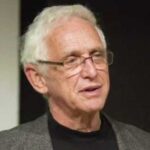 (Onsite)
(Onsite)
Dynamic Kinetic Stability: Seeking the Physical Basis of Purpose and Mind
The seeming incompatibility between central life attributes – agency, mind, consciousness - and the objective laws of physics and chemistry continues to torment modern science. In this talk, I describe a largely unrecognized dimension within chemistry, dynamic kinetic chemistry, its underlying stability kind, Dynamic Kinetic Stability (DKS), and discuss how the existence of that kinetic dimension may provide a physical/chemical characterization of the living state. It is suggested that all living things, together with many of their subsystems, are in the DKS state, open to both energy and material exchange, and critically dependent on their environment for energy and material support. That dependence allows for the chemical emergence of 'self' and 'non-self' with that dynamic interaction providing the physical basis for life's cognitive capability and the beginnings of a mental dimension. Darwin's radical suggestion, that life's mental dimension started early in the evolutionary process and is as much a part of the process as its physical counterpart, 160 years on, appears to have been magnificently prescient. Based on that kinetic perspective, it is further concluded that, contrary to conventional wisdom, the evolutionary process is both directed and has an identifiable driving force.
Addy Pross is a Professor of Chemistry at the Ben Gurion University in Isreal where he was first appointed in 1973. An expert in chemical reactivity, he proposed the concept of Dynamic Kinetic Stability (DKS) as a distinct stability kind, quite different to thermodynamic stability, and which can assist in bridging between the physical and biological worlds. Pross is of the view that a major challenge facing both the physical and biological sciences is the creation of a unified conceptual framework able to integrate the two material worlds. A central idea in his thinking is that an ahistoric understanding of the origin of the life process is the material link that can assist in bringing about that integration. Addy Pross has authored ca.140 papers and reviews, including four books: Theoretical and Physical Principles of Organic Reactivity (Wiley 1995); What is Life: How Chemistry Becomes Biology (2nd Ed., Oxford Landmark Series, 2016); Evolution on purpose (a co-edited monograph, MIT Press, 2023); and his most recent work, Life's Chemical Secret: The Origin of Purpose and Mind (MIT press, scheduled for publication in 2026). He was recently awarded the Israel Chemical Society 2025 Gold Medal for his formulation of the DKS concept and predicting the existence of a previously unknown form of matter.
13hr00 lunch
THEME: Learning and Intelligence Across and Beyond Life
14hr30
Michael Levin (Online)
 Origin of cognition and its impact on biomedicine and bioengineering
Origin of cognition and its impact on biomedicine and bioengineering
Key features of the mainstream understanding of evolution are: the genetic material that undergoes mutation, and the phenotypic traits that are selected. The mapping between them – developmental morphogenesis – is thought to be complex, but mechanical, with DNA encoding form and behavior. In this talk, I will attempt to do three things. First, show that morphogenesis is not amenable to open-loop models of mechanisms that know nothing and produce complex shapes by "emergence". Instead, it is a process in which the collective intelligence of cells navigates anatomical space, with learning and decision-making capacities better understood through concepts from cybernetics and behavioral science (i.e., disciplines suited to goal-seeking, problem-solving systems). Second, show the implications for evolution of operating on the agential material of life (as contrasted with hardwired, goalless mechanisms). Our computational analysis reveals fascinating ways in which evolution operates differently when dealing with intelligent matter (which evolved long before neurons or brains), thereby explaining a number of long-standing puzzles in the field. Finally, use our new synthetic proto-organisms (Anthrobots and Xenobots) to ask questions about the sources of competencies and setpoints in systems that reuse evolved parts (cells and molecular pathways) but have no history of selection at the organism level. Where do the properties and goal states of novel beings come from, if they were not selected by a long history, nor programmed directly by an engineer? I will end with some speculative suggestions on the latent space of patterns that informs the self-assembly of bodies and minds, and point to important implications of these ideas for fundamental biology, biomedicine, bioengineering, and the ethics of coexistence with alien minds within us and around us.
Michael Levin is a Developmental and Synthetic Biologist, working at the intersection of biophysics, regenerative medicine, and philosophy of mind. He is currently the Vannevar Bush Distinguished Professor at the Department of Biology at Tufts University, the Director of the Allen Discovery Center at Tufts, an Associate Faculty Member at the Wyss Institute at Harvard, and co-director with Josh Bongard of the Institute for Computationally-Designed Organisms. His experimental research focuses on questions of diverse intelligence, creating conceptual frameworks, computational tools, and biological assays to recognize and communicate with unconventional minds in unfamiliar guises. Using evolved, engineered, and hybrid model systems, his group seeks to develop ways to expand our ability to relate to beings across the space of possible embodied cognitive systems and understand how minds appear, scale, and transform in our universe. Biomedical applications of their work on the collective intelligence of cells as they navigate anatomical space range across birth defects, regeneration, cancer, and aging. He is the author of 430+ peer-reviewed papers. He is a Fellow of the AAAS, having received awards including the Donald O. Hebb Award for "outstanding contributions to research in biological learning" from the International Neural Network Society. His work on the molecular basis of left-right asymmetry (Cell 1995) was chosen by the journal Nature as a “Milestone in Developmental Biology in the last century”.
15hr45 break
16hr15-18hr15
Richard Watson (Onsite)
Cognition-First Evolution
The conventional narrative of evolution is that living things are mostly dumb, bio-molecular machines, created by and for their genes, from instructions that natural selection writes into the DNA. Cognition, in such a view, is irrelevant, rare in the tree of life, and late in the evolutionary story. In fact, what we find is that cognition is coextensive with life, the characteristics of organisms are only weakly determined by genes, the interaction of organisms with their environment influences their behaviour, their morphology, their development, their genetic activity, and the mechanisms of variation, selection and inheritance on which natural selection depends. Even the identity of the Darwinian unit is repeatedly redefined. And yet, the conventional narrative does not budge. It is anchored by the assumption that natural selection is the only possible natural mechanism capable of producing adaptive organization. But this is not true. Learning is more fundamental (and smarter) than natural selection, and it does not need natural selection to originate or function. Learning by natural induction can occur in any dynamical system described by a network of interactions that give way under stress, even a network of randomly connected springs. This is sufficient for a system to learn to solve problems (resolve conflicting constraints) better with experience, without any natural selection (or design). Biology is full of such viscoelastic networks. This opens the possibility of turning the conventional narrative on its head – biological cognition comes first, before natural selection, and continues to lead adaptive change. The learning capabilities of life include genetic evolution as one of many layers of memory that it involves in the natural induction process. This inversion sheds light on numerous biological puzzles, ranging from neutral evolution to genetic indeterminism and phenotype-first adaptation, to evolutionary transitions in individuality.
Richard Watson is a Theoretical Evolutionary Biologist, Complexity Scientist, and Professor in Artificial Intelligence. His expertise ranges from modelling adaptation in biological networks to combinatorial optimization algorithms. His work has radically extended the unification of evolution and learning, in particular with unsupervised connectionist learning familiar in neural networks. He also studies the evolutionary transitions in individuality and seeks a broader interpretation of biological evolution that goes beyond natural selection. He is a Professor in the school of Electronics and Computer Science, and a member of the Institute for Life Sciences, at the University of Southampton, UK University Lab website. He is the author of Compositional Evolution (MIT Press), and recent papers include How Can Evolution Learn? (TREE), Natural Induction (Entropy), Agency, and goal-directed behaviour (Biological Theory), and Design for an Individual (Frontiers Ecol/Evo).
Henry H. Heng (Onsite)
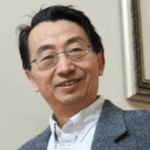 Correcting Darwinism: Macroevolution Precedes Microevolution in Two-Phased Cycles of Information Innovation, Preservation, Mutual Selection, Population Growth, and Carrier Replacement
Correcting Darwinism: Macroevolution Precedes Microevolution in Two-Phased Cycles of Information Innovation, Preservation, Mutual Selection, Population Growth, and Carrier Replacement
Evolution is a well-established fact, but the traditional Darwinian mechanism—natural selection acting on small, gradual changes over long timescales—remains inadequate to explain speciation. While short-term changes are observable, most species show prolonged stasis. Genomic data reveal that large-scale genome reorganization—not gradual gene-level mutations—has driven evolutionary history. Population genetics fails to explain how incremental shifts in gene frequency (microevolution) give rise to new species with distinct karyotypes (macroevolution). These facts necessitate a re-examination of evolution's core assumptions. To address the challenge of observing macroevolution, we use cancer as a model in which macro- and micro-level somatic evolution unfolds within years. Longitudinal karyotype tracking reveals a two-phased process: genome chaos drives macroevolution, followed by gene-mediated microevolution. This insight, also relevant to organismal evolution, underpins Genome Architecture Theory, which challenges key neo-Darwinian assumptions: (1) microevolution primarily constrains change and cannot drive macroevolution; (2) speciation begins with macroevolution, followed by microevolution to expand the population. New karyotypes arise in individuals—not populations—and reproductive barriers block gene flow from the outset. Most individuals with altered karyotypes fail to find compatible mates and are eliminated, explaining why new species often emerge during mass extinction events, when rare transitions gain a survival advantage. To unify and prioritize evolutionary mechanisms, we propose a general spiral model, where complexity arises through distinct, historically contingent processes and mutual selection cycles. Macroevolution generates new system-level information through genome reorganization, while microevolution conserves and amplifies this information via inheritance, bio-regulation, and population growth. The cycles of innovation/constraint, driven by carrier replacement/growth to maintain information flow, are shaped by environmental crises, organic codes, and the progressive rise of biological complexity. Such research offers a more realistic view of the mechanisms and sequences of evolution than Darwinism, and it also suggests that artificial intelligence could emerge as a superior information carrier, potentially displacing humans.
Henry Heng is a Molecular Cytogeneticist specializing in chromosome and genome structure, function, and variation, with implications for inheritance, cancer, and evolution. He is a Professor at the Centre for Molecular Medicine and Genetics at Wayne State University School of Medicine in Detroit, USA, serves on seven editorial boards of international bioscience journals, and has published over 200 peer-reviewed articles, two dozen book chapters, and multiple books. Heng's contributions span cytogenetics, cancer biology, genomics, and evolutionary theory and have introduced new theories and concepts that help advance new research avenues. These include (1) Genome Architecture Theory (GAT) which proposes that genome organization, rather than individual genes, drives macroevolution, with karyotype coding defining species identity and system-level information; (2) Genome Chaos theory which introduces stochastic, large-scale genome reorganization as a driver of speciation and cancer evolution, with environmental crises acting as key triggers for information self-creation via genome chaos; (3) The Two-Phased Evolutionary Model that understands macroevolutionary innovation as preceding microevolutionary adaptation, distinguishing mechanisms across genomic levels; (4) Karyotype Coding and Information Self-Creation theory which demonstrates that species identity is karyotype-encoded through the order of genes on chromosomes, and that evolution depends on information self-creation and preservation; (5) Function of Sexual Reproduction theory which argues that its primary role is preserving karyotype coding, with microevolution acting mainly as a constraint rather than system-level innovation; (6) Cancer Evolution theory that, applied to GAT shows that tumours evolve via two-phased dynamics, reshaping understanding of therapy-induced resistance and chromosomal instability; and finally, (7) regarding cytogenetic advances, Heng identified diverse chromosomal and nuclear variants, pioneered high-resolution FISH, and developed DNA–protein-co-detection techniques.
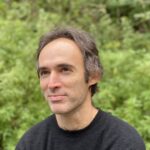 Oded Rechavi (Online)
Oded Rechavi (Online)
Transgenerational small RNA inheritance
In C. elegans nematodes, dedicated machinery enables the transmission of small RNAs, which regulate gene expression across multiple generations, independently of changes to the DNA sequence. Different environmental challenges, including exposure to starvation, genomic parasites, pathogens, and heat stress, generate heritable small RNA responses that, in some instances, might be adaptive. Recently, we have also demonstrated that neuronal processes can produce small RNA-mediated heritable responses, and that the decisions made by their progeny are influenced by whether their ancestors experienced stress or not. I will discuss the underlying mechanisms and the potential of small RNA inheritance to affect the worms' fate. Lastly, I will examine how these new findings might change our view of the process of evolution and the limits of inheritance and provide evidence that transgenerational inheritance of small RNAs also occurs in other, very different organisms.
Oded Rechavi is a Molecular Geneticist, a full professor in the Faculty of Life Sciences and the Sagol School of Neuroscience at Tel Aviv University. His mission is to challenge fundamental long-held dogmas. He provided the first direct evidence that an acquired trait can be inherited, and worked to elucidate the mechanisms and rules of RNA–mediated transgenerational epigenetic inheritance. Using C. elegans nematodes, simple yet powerful model organisms, he discovered that nematode brains can control the behavior of the progeny, and identified a simple neuronal circuit–level mechanism that explains economic irrationality. Aside from his work on epigenetics, Dr. Rechavi utilized genome sequencing of ancient DNA to “piece together” fragments of the Dead Sea Scrolls, demonstrated that Toxoplasma parasites can be genetically engineered to deliver drugs to the nervous system, and found a mechanism that dramatically delays forgetting. He is a European Research Council (ERC) Fellow and has been awarded many prestigious prizes, including the Polymath Award (awarded by Eric and Wendy Schmidt’s foundation, Schmidt Science), the Blavatnik Award for Young Scientists (awarded by the New York Academy of Science and the Israel Academy of Science), the Kadar Family Award for Outstanding Research, the Krill Prize of the Wolf Foundation for Excellence in Scientific Research, the Alon Fellowship, the F.I.R.S.T (Bikura) Fellowship, and the Gruss Lipper Postdoctoral Fellowship. He won multiple teaching awards and is a member of the Israel Young Academy and the European Molecular Biology Organization (EMBO). His publications can be found here.
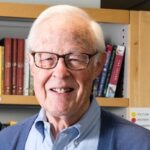 Peter A. Corning (Online)
Peter A. Corning (Online)
Teleonomy and Synergy: How Living Systems Shaped Biological Evolution
Charles Darwin's theory of evolution was seriously deficient. Although his concept of natural selection was an important contribution – highlighting the fundamental fact that life on Earth is a contingent, always at-risk enterprise – he failed to acknowledge the fact that all living systems – from the smallest single-celled bacteria to humankind – are also shaped by their evolved purposiveness (teleonomy). Their initiatives and activities – their "agency" – have exercised an important influence over the trajectory of life on Earth, as one of Darwin's predecessors, Jean-Baptiste de Lamarck, appreciated. Lamarck proposed that changes in an animal's "habits", stimulated by environmental changes, have been a primary source of evolutionary change over time. Also, Darwin portrayed evolution as a fundamentally competitive process (the "struggle for existence" in Darwin's term), as did many of his contemporaries. Today we know that life has also been a multi-faceted cooperative (synergistic) enterprise and that this has been of overriding importance in the evolution of complexity over time. Teleonomy and cooperative functional effects (synergy) have shaped natural selection in many different ways. Indeed, we now know that many influences have shaped evolution. The proposed Inclusive Synthesis is also open-ended, because it is expected that still more has yet to be learned about biological evolution; it is an ongoing work-in-progress rather than a completed theoretical edifice. "Teleonomic Selection" (after Corning) and "Synergistic Selection" (after John Maynard Smith) have played an important role in evolution. It's time for a more inclusive theory.
Peter A. Corning graduated from Brown University, served as a naval aviator (with 106 carrier landings), then as a science reporter for Newsweek magazine, earned a Ph.D. at New York University, did a post-doc at the Institute for Behavioural Genetics (University of Colorado), taught for many years in the Human Biology Program and Institute of Political Studies at Stanford University, and directed the Research Institute in Complexity Science. He has also published over 200 scientific papers and nine books, including The Synergism Hypothesis (McGraw Hill); The Fair Society: The Science of Human Nature and the Pursuit of Social Justice; and Synergistic Selection: How Cooperation Has Shaped Evolution and the Rise of Humankind. Most recently he wrote a trade book on the Superorganism: Toward a New Social Contract for Our Endangered Species. In recent years, Corning and his wife, Susan, developed and operated a diversified, four-season organic market farm on San Juan Island in Washington State. They have two daughters, a son, and two grandchildren (so far), all living and working in Seattle.

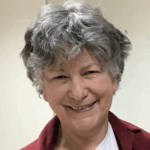 Eva Jablonka (Onsite)
Eva Jablonka (Onsite)